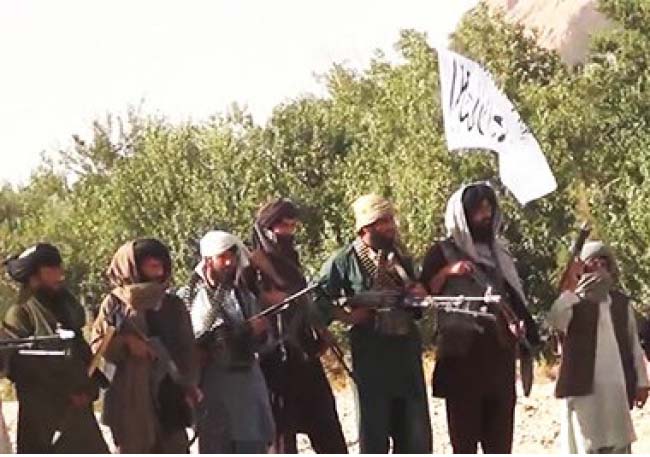The Nangarhar province has earned the stigma of being the powerbase, if not the birthplace, of the Islamic State group in Afghanistan. Security has been deteriorating in the province in recent months as the Islamic State group is fighting both the government forces and the Taliban for strengthening its foothold and establishing a “regional base” for the ambitious Syria-born Islamic State group led by Abu Bakr Al-Baghdadi. The government has been leading a fierce battle this year against the Islamic State militants to prevent the province from becoming a new hotbed of the insurgency. The government has set up a special unit led by the security and intelligence agencies to fight the militants in the province. Only a few days ago, the authorities announced that around 80 militants of the Islamic State group has been killed in security operations launched in Nangarhar.
Civilians are increasingly becoming a target for the insurgent group as it attempts to promote horror, savagery and fear so that the local Islamic State group resembles the main group in Iraq and Syria. The Islamic State group in Nargarhar does not only target the Taliban and the government forces, but also the civilian. Recently, members of a family were brutally killed by the militants. There has been increasing calls from members of Wolesi Jirga and local politicians as well as the public on the government to take action against the group. Militants loyal to Islamic state in Zabul province beheaded seven Hazara passengers, sparking a nation-wide outcry and a huge demonstration in the capital. On Wednesday, dozens of locals and civil society members took to the streets in the provincial capital Jalalabad, demanding government’s action for promoting peace and stability in the province and curb the growing insecurity in the province by taking action against the militants. The demonstrators also urged the National Unity Government (NUG) to revise its security strategy for the province.
The demonstration comes only a few days after militias loyal to Zahir Qadir, a prominent Nangarhar MP in the parliament, beheaded a number of IS militants. The beheading is coming as a revenge to the IS beheadings of Taliban members and local pro-government militias. The trend of beheadings in the eastern province has sparked fresh concerns across the country over the deteriorating security and the changing nature of the conflict. The militants belonging to the main Taliban group and the Islamic State in Nangarhar province has been involved in such revenge targeting for months. The two groups have brutally killed and beheaded each other’s members in the province. In a show of savagery this year, members of Islamic State planted bombs in a field and blew up members of the rival Taliban. The local Islamic State have been imitating the Islamic State group in Iraq and Syria by inventing more sophisticated methods of killing and torture.
The approach by all parties involved in the fight for prominence in Nangarhar, including the Taliban, the Islamic State and pro-government militias fighting the Islamic State indicate that the conflict is undergoing a crucial metamorphosis which may have long-term impacts over the traditional insurgency led by the Taliban over past fourteen years. What is clear is that the militancy in Afghanistan is to some extent evolving into a more sophisticated and brutal insurgency, in which there is no place for protecting civilians or avoiding from desecration of dead enemy combatants. The only hope is that the reach of the Islamic State and other groups with similar approaches are limited over the far-reaching insurgency against the government across the country.
However, the concerns still are in place because the Taliban and local pro-government militias also are starting to follow the lead of the Islamic State group in exercising savagery and brutality as their war tactics. The recent beheading of members of the Islamic State group proved the concerns of such a vulnerability justified. The ongoing crisis in Nangarhar is gradually becoming a starting point for a changed militancy in the country which would compound the ongoing conflict in Afghanistan. The rise of the Islamic State group in Nangarhar and some other provinces such as Kunar and Zabul is becoming as another puzzle in the already sophisticated nature of the conflict. The ground is ripe in Nangarhar for radicalization of the youths by groups such as the Islamic State and for becoming the province as a hotbed of a much hard-headed insurgency.
This should be considered by the government in any peace talks with the militant groups particularly in peace talks with the main Taliban group led by Mullah Mansoor. The Taliban and all other parties involved in the conflict must respect wartime universal laws and protect civilian population disregard of situations on the ground.
The government of Afghanistan should talk this with the militants entering in peace talks, and the UN must specifically pressurize the militant groups to avoid targeting civilian. Taliban’s stated war approach in the past has been to prevent targeting innocent civilians. Despite that the group, which loosely controls its fighters across the battlefield, failed to ensure protection of civilians as they say. A large portion of the civilian casualties is attributed to the Taliban targeting non-combatant targets.
At such a difficult time for the government of Afghanistan, it is crucially important to beef up the anti-insurgency campaign both by strengthening Afghan security forces and international community including the Resolute Support mission. Media reports say that the US commander in Afghanistan has suggested of his intention to persuade the US government of maintaining the current level of its troops in Afghanistan by 2017.
The government and the Resolute Support mission must be able to keep sustained pressures over the militant groups to deprive them of strategically valuable gains across the country. In the uproar of the evolving insurgency, the government and the allied nations should take the lead both on the battleground and the peace negotiations with the Taliban.

